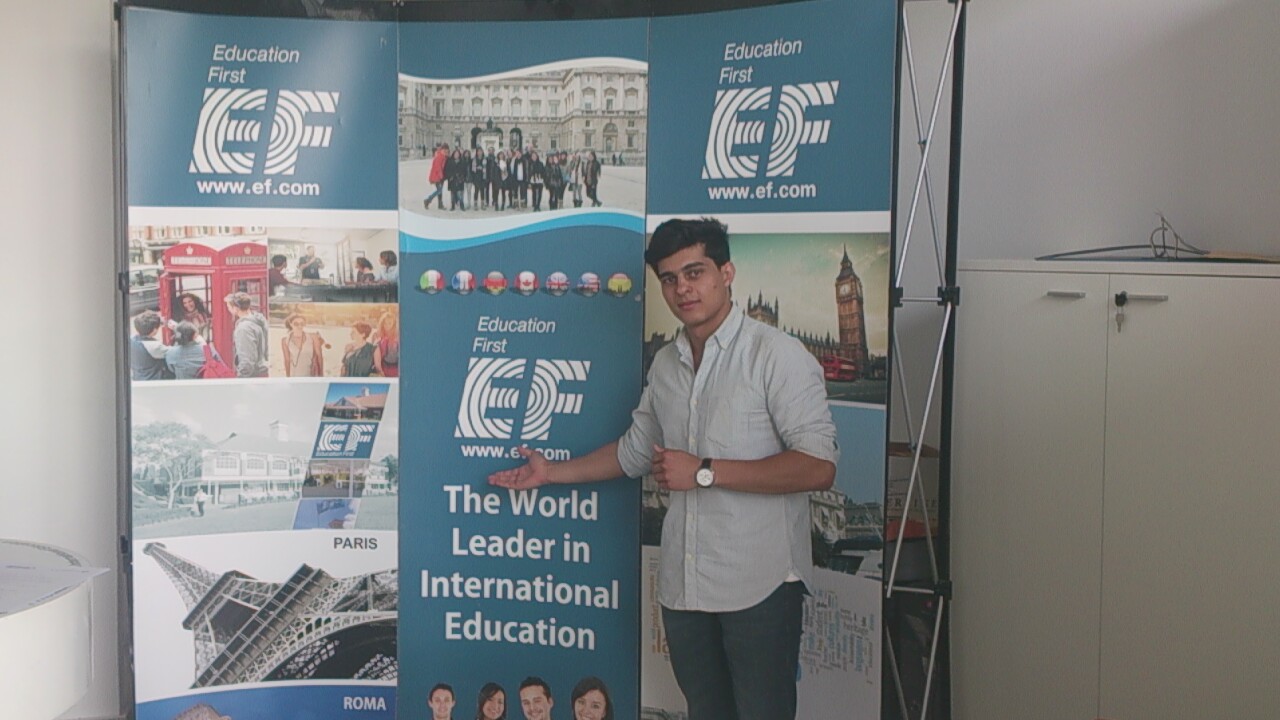By Callum Paton.

Tripoli, 7 July 2013:
One of the leading lights of the national youth movement, Suhib Mabruk, has been . . .[restrict]been selected as the first Libyan to participate in a joint programme organised by Education First (EF) and the UN’s Alliance of Civilisations (UNAOC).
Mabruk will travel to the United States for the week-long programme in August in which 75 delegates from around the world have been selected to participate. The youth leaders will engage in cross-cultural dialogue and build skills to achieve social change at the summit which will be held on EF’s New York campus.
The selection committee, comprised of young people and representatives from the UNAOC and EF, reviewed 15,000 applications, whittled down from 100,000 individuals, before making their final decision.
“I think the programme will help me to find new ideas not only about Libya but also from different regions,” Mabruk tells the Libya Herald. “Being in a different country you get to meet new people; New York is not just one culture, it is very diverse,” he adds.
For Mabruk, a key member of the youth NGO, H2O, which seeks to create democratic and social change in Libya, initiatives fostering understanding and communication are of great value. “Libya is a very diverse country and we need to learn about diversity and accepting other cultures,” he says.
He is no stranger to international forums and has participated in the North African Model UN, as well as a six-week intensive programme at the Roger Williams University in Rhode Island, with the Middle East Partnership Initiative.
“I think these kinds of programmes which enhance dialogue, not only between different countries but also within them between different parties and different tribes, are very important,” he says.
Through H2O Marbuk was involved in raising awareness for elections to the General National Congress (GNC) and then monitoring its legislative activities. He explains that fresh elections to the House of Representatives have offered not only an opportunity to the country, as the legislature learns from the mistakes of the past, but also to young people. “I am quite positive about the position of young people,” he says, “because there are a number of them among the new members of the House of Representatives”.
However, there are still challenges ahead he believes. “There have been opportunities given to the youth in politics but in the civil society field,” Mabruk says. “Personally I haven’t seen many young people involved in senior positions in government.”
He explains the problem has to be solved by the youth questioning the status quo. “They have to push themselves into the positions on the front line,” he says. “I think many do not want to vote for young people and this is because of an issue of trust. There is a stereotype about young people that they don’t have experience.”
For Mabruk there is much from the Libyan experience which will be of interest to his international colleagues at the summit. Of the utmost importance, he says, is tolerance of the past. “For 42 years we were under the regime which meant that millions of people were involved with it in different positions,” he says. “Trying to exclude these people from the future of Libya will only cause more problems. We should exclude only those who have committed crimes or who had a role in the intimidation,” he adds.
EF, through which the programme was managed, is the only major international education company to have opened wholly owned offices in Libya. It has two offices in Tripoli, one in Ben Ashour and one in Siyahiya. It has a staff of 12 Libyan professional academic advisors who guide both students and parents in choosing the right language programme, international boarding school or university pathway. It opened in Libya two years ago.
[/restrict]









